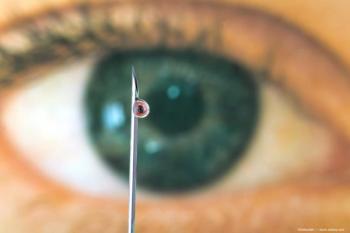
ISTA Pharmaceuticals files IND application for drop to treat allergic conjunctivitis
Irvine, CA-ISTA Pharmaceuticals Inc. has submitted an investigational new drug application with the FDA for its eye-drop formulation of bepotastine to treat allergic conjunctivitis.
Irvine, CA-ISTA Pharmaceuticals Inc. has submitted an investigational new drug application with the FDA for its eye-drop formulation of bepotastine to treat allergic conjunctivitis.
The company intends to move bepotastine directly into phase II and III clinical trials in the United States during the first quarter of this year, based on extensive preclinical research and early-stage clinical evaluations conducted by Senju Pharmaceutical Co. Ltd. in Japan. In that country, an oral formulation of the drug was approved for the treatment of allergic rhinitis in 2000 and urticaria/pruritus in 2002.
In August, ISTA licensed the exclusive North American rights to the drug from Senju, which had obtained exclusive worldwide rights, with the exception of certain Asian countries, from Tanabe Seiyaku Co. Ltd. in 2001. Tanabe markets the drug in Japan under the brand name Talion.
Bepotastine has three primary mechanisms of action: it is a non-sedating, selective antagonist of the histamine 1 receptor; it has a stabilizing effect on mast cells; and it suppresses the migration of eosinophils into inflamed tissues.
“We believe bepotastine, with its tri-mechanism approach, has the potential, if approved by FDA, of treating a significant percentage of patients in the United States who suffer from allergic conjunctivitis each allergy season,” said Vicente Anido Jr., PhD, president and chief executive officer of ISTA. About 20% of the U.S. population experiences signs of seasonal ocular allergy, he added.
Newsletter
Don’t miss out—get Ophthalmology Times updates on the latest clinical advancements and expert interviews, straight to your inbox.





























